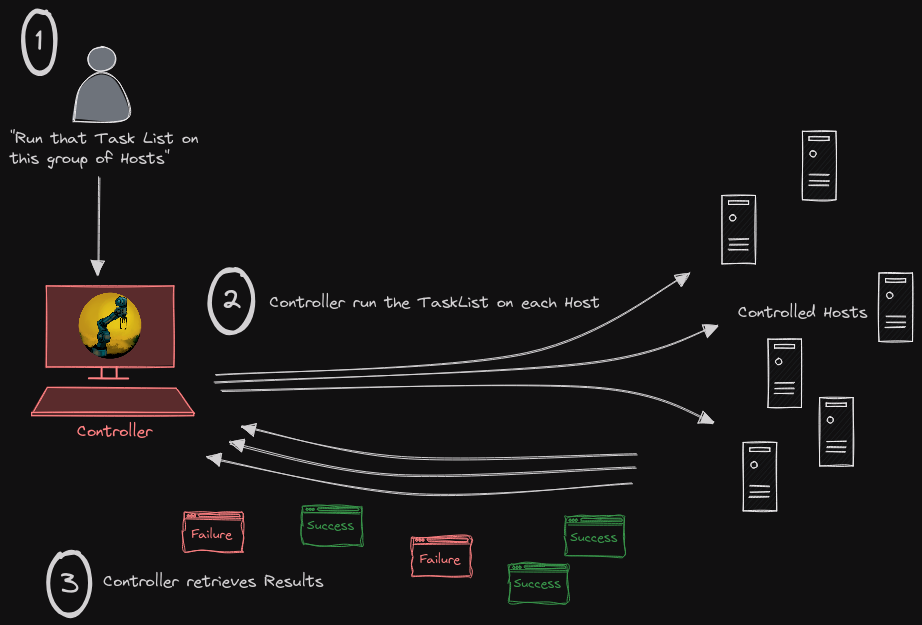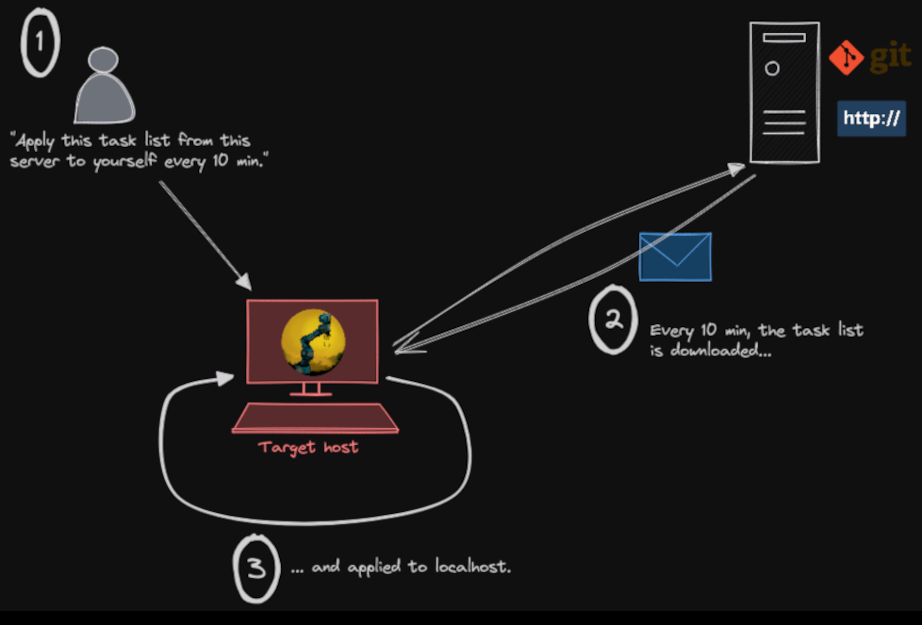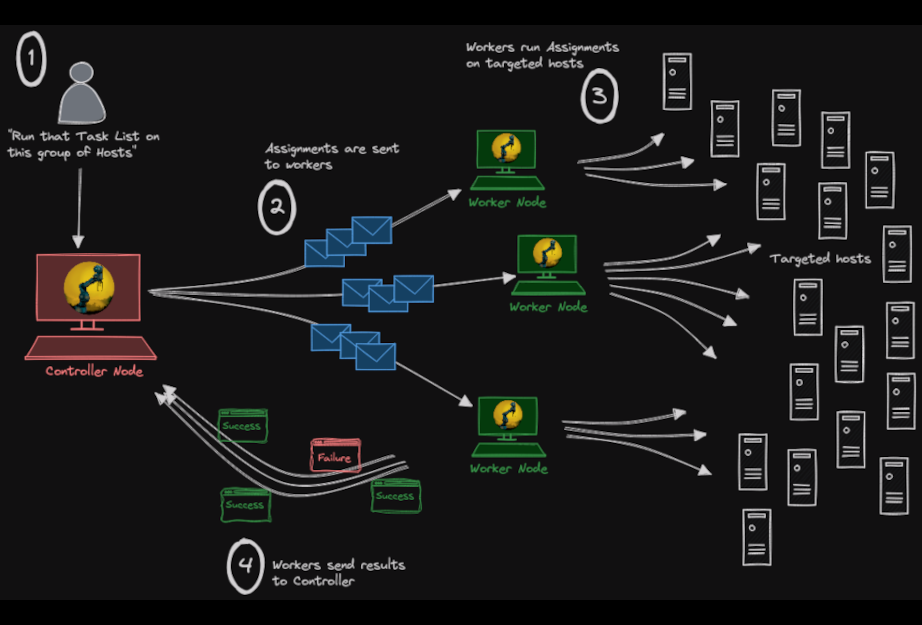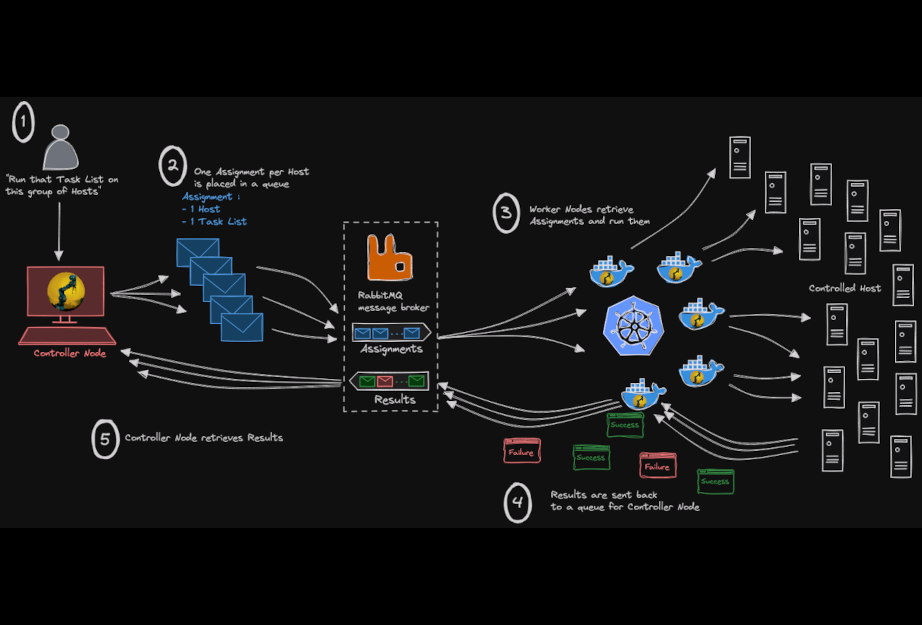Usage
Import the crate
cargo add duxcore
Now let's perform the usual example : turn a host into a webserver (but, this time, right from your Rust code !)
use duxcore::prelude::*;
fn main() {
// First we need to define what the expected state of the target host is.
let my_tasklist = r#"---
- name: Let's install a web server !
steps:
- name: First, we test the connectivity and authentication with the host.
ping:
- name: Then we can install the package...
with_sudo: true
apt:
package: '{{ package_name }}'
state: present
- name: ... and start & enable the service.
with_sudo: true
service:
name: '{{ service_name }}'
state: started
enabled: true
- name: What date is it on this host by the way ?
register: host_date
command:
content: date +%Y-%m-%d" "%Hh%M
- name: Let's see...
debug:
msg: 'date: {{ host_date.output }}'
"#;
// Then we create a 'Job'.
let mut my_job = Job::new();
// We set who the target host of this Job is, and how to connect to it.
my_job
.set_address("10.20.0.203")
.set_connection(HostConnectionInfo::ssh2_with_key_file("dux", "./controller_key")).unwrap();
// We give it some context and the task list.
my_job
.add_var("package_name", "apache2")
.add_var("service_name", "apache2")
.set_tasklist_from_str(my_tasklist, TaskListFileType::Yaml).unwrap()
;
// We can finally apply the task list to this host.
my_job.apply();
// Let's see the result.
println!("{}", my_job.display_pretty());
}





